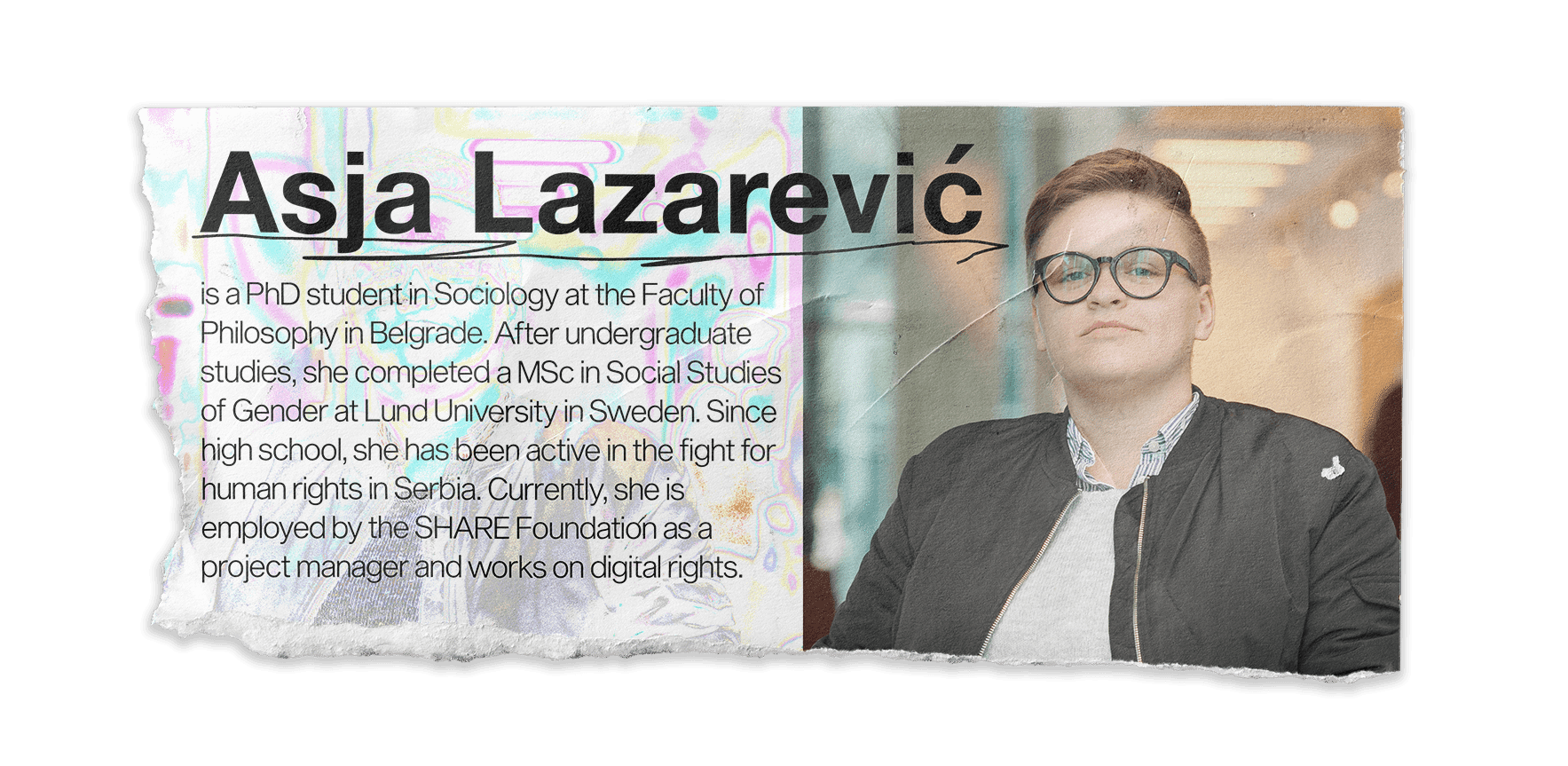Critiques of the commercialization of Pride


When June, the Pride Month, begins, we all notice that even the largest corporations change their logo by switching it to rainbow colors; the rainbow being a symbol of the LGBTI+ movement. Large companies, due to social changes that have led to growing public support for LGBTI+ equality, in this way express their declarative support for something that has already become mainstream in Western societies. In this article, we will present the existing critical reviews that do not interpret these activities of large companies as authentic but as aimed toward increasing their profits.
Since the social climate in the West is such that most people support the LGBTI+ population and their rights, the absence of symbols or representations of LGBTI+ people through marketing campaigns, e.g. the absence of gay couples from advertisements of a product, could be interpreted as a result of homophobia. Many buyers of a particular product might redirect their money to those brands that openly communicate their support for LGBTI+ rights. Thus, support for the LGBTI+ population is not necessarily seen as an expression of goodwill, but as a necessary move to survive in market competition from which you can be excluded if your company is brought into connection with homophobia or transphobia. Moreover, some of these companies do not necessarily protect their LGBTI+ employees, i.e. they do not have anti-discrimination business policies, but their support begins and ends with the change of colors on the logo in June every calendar year.
Critical views indicate that the same corporations do nothing for the LGBTI+ population in countries where it is not profitable, such as Saudi Arabia. In these contexts, companies do not dare to change the color of their logo, let alone include the representation of LGBTI+ individuals in advertising their products, nor do they publicly express disagreement with government policies that discriminate against LGBTI+ people.
When it comes to Pride March itself, it is also seen as a certain endeavor that can bring profit, i.e. as a big party on the streets that also aims to contribute to the visibility of LGBTI+ people. Every year, entire cities benefit from welcoming foreign guests, and to take part in various contents within the Pride Week, you have to buy a ticket, which also results in class-deprived parts of the LGBTI+ population being excluded and invisible at the events. Pride organizers around the world note that with the growing number of people coming to Pride, the number of interested sponsors has also increased. This suggests that support for the LGBTI+ issue is not necessarily a reflection of the authentic values of some companies, but a recognition that Pride is a place for potential earnings and visibility that brands can get. From the perspective of companies, Pride can be seen as an investment and at the same time a good way to profile themselves as entities dedicated to social justice and equality. That is companies usually position and present themselves in the marketing race so that it corresponds to their desire for increasing their profits, and often adjust their values to the market in which they operate at a given moment.
Many businesses even go a step further. Not only are they using LGBTI+ rights to market their brand so that it is perceived as empathetic to the social problems of minorities, but they are also starting to make money and increase their profits using LGBTI+ symbols. For example, they will make rainbow-colored sneakers, or in June they will release a limited edition of their juice in a bottle with a printed LGBTI+ flag, for which they will charge more. LGBTI+ people and their allies are not a small part of the population in Western societies and are always seen as potential customers with purchasing power. While many people see this as progress and are happy to be able to buy a product with a picture of a rainbow, others are more skeptical about the intentions of those who make money from it.
Leftist political currents inside and outside the LGBTI+ movement are particularly critical of this type of support given to the LGBTI+ movement. Many activists of the political left believe that by focusing the discussion on inequality based on identity categories, such as gender and sexuality, the concept of class is losing its significance and indirect support is being given to easier maintenance of the capitalist system. Classes can be defined as different groups that do not have equal control over resources, and this usually refers to those resources of an economic nature. The LGBTI+ mainstream movement is criticized for the lack of intersectionality, that is, the lack of the perspective that indicates the complexity of our social positions, which depend not only on whether we are gay or straight but also, among other things, on our economic conditions. That said, through simplification, if you are class-privileged, you will have a better chance of avoiding the many extreme consequences of homophobia. The left claims that the corporate approach to LGBTI+ rights only serves to make out of minority groups even better workers and consumers, those who will now be even more loyal to a system that legitimizes and accepts their identities. In addition, in capitalism, any radical struggle is co-opted, while all policies that are threatening to the system itself are excluded from that struggle and never communicated.
Therefore, for the left, accepting business support and fighting for equal rights represents fighting for the right to be equally exploited. Returning to the very beginnings of the struggle for LGBTI+ rights, which is often presented as extremely radical, anti-systemic, and carried on the shoulders of the most marginalized among the LGBTI+ population, left-wing activists criticize the mainstream struggle for equality as a desire for assimilation. We strive not to be discriminated against when applying for a job, without tackling the working conditions in a given workplace for all workers. From the desire to change the whole system that makes us oppressed, we moved to the desire to be an equal part of that system. The demands of the movement are seen as not radical when compared to the movement's very beginning; they are seen not as an attempt at emancipation and true liberation, but as a need to be accepted and recognized, but also exploited like everyone else. In this way, critics believe, the opportunity is not used to connect the problems of the LGBTI+ community with broader social problems, which would lead to building broader solidarity between different social groups.
There is no doubt that corporations in the West, especially in those societies where there are tax breaks for those who donate some of their money to good causes, through donations and sponsorships are running a continuous marketing campaign that only a few profit from. Even though this part of the argument is legitimate, critics often do not suggest alternative solutions that would help the LGBTI+ community improve the quality of their daily lives. In addition, the LGBTI+ population is polarized and leftists, while often ignoring the real needs of LGBTI+ people, are losing potential allies by demanding and expecting too much from one heterogenous oppressed group. We should not forget that LGBTI+ people are oppressed in different, intersecting ways; at their jobs, they share problems with all other workers, however, on top of that, they face homophobia and/or transphobia.
Pride as a method of fighting for equal rights has proven to be a pretty good strategy that has brought some improvements to many within the LGBTI+ population. Public visibility has improved significantly, and discussions about the equality of sexual and gender minorities have penetrated the mainstream media. Countries are increasingly introducing anti-discrimination laws that protect LGBTI+ people from unequal treatment in various spheres of life. There have also been major changes in the field of legislation dealing with same-sex unions, and such unions or marriages are now legal across Europe. Activists of the political left will point out that the institution of marriage can only serve privileged couples who own property, and that it does nothing for poor LGBTI+ people. However, Serbia, as well as some of the countries in the region, are still waiting for such a law and full formal equality of LGBTI+ citizens, even if it was equal exploitation. In such a context, full of homophobia and denial of the right to equal opportunities and life, it seems that the support of the business sector is quite justified and more than welcome, which will we discuss further in the following article.







